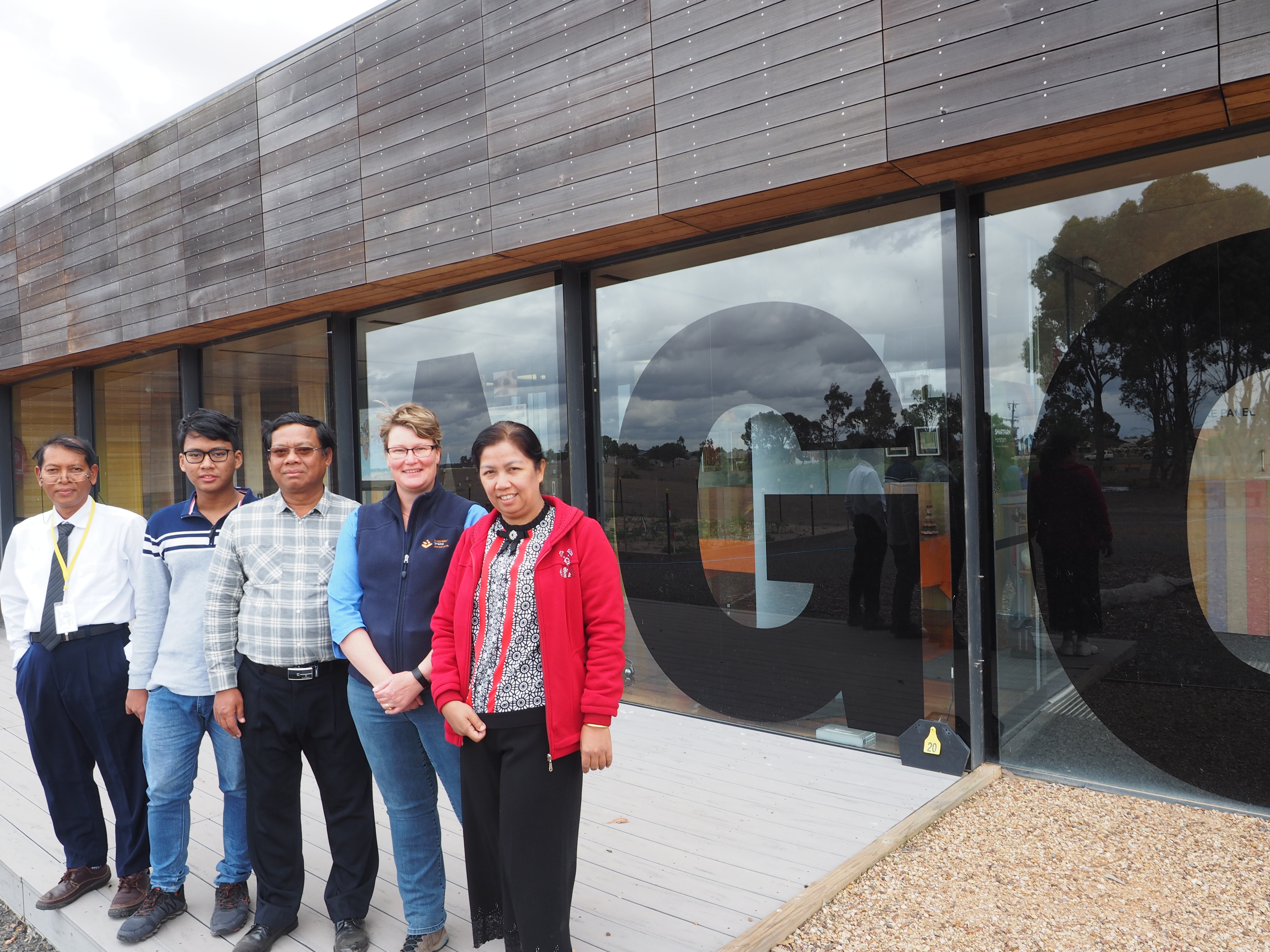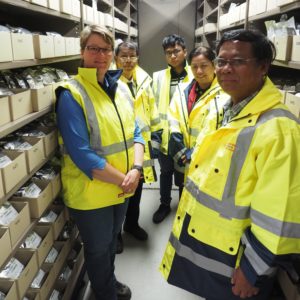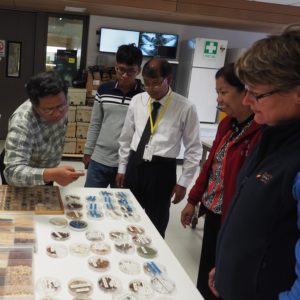

A focus on Myanmar’s National Genebank
February 25, 2019

Further to earlier training supported by our Victorian committee on seed collecting and conservation, the committee has more recently supported four staff from the Myanmar National Genebank to visit the Australian Grains Genebank (AGG) for capacity building to improve their genebank activities. Training was provided by Dr Sally Norton (AGG), Dr Katherine Whitehouse and Nicole Sawyer from Agriculture Victoria Research Division.
 Training covered theory and hands on activities on seed storage, postharvest seed threshing, cleaning and subsampling, preparing seed for long-term conservation under -20°C, and conducting seed viability testing. The participants were also trained on how to collect data using tablet devices, and how to manage data sets in computer databases.
Training covered theory and hands on activities on seed storage, postharvest seed threshing, cleaning and subsampling, preparing seed for long-term conservation under -20°C, and conducting seed viability testing. The participants were also trained on how to collect data using tablet devices, and how to manage data sets in computer databases.
“I was very impressed with the Australian Grains Genebank (AGG). I am more aware of Genebank activities from what I studied. I now have ideas on how to improve and modify our seed bank.” – Naing Kyi Win, Director General, Department of Agricultural Research, Myanmar.
“The training activities and field visits were important and effective, and the knowledge gained from the training and study tour will be helpful and supportive to the management of germplasm in the Myanmar Seed Bank.” – Minn San Thein, Deputy Director and Head, Myanmar Seed Bank, Department of Agricultural Research, Myanmar.
 “The training provided has enabled them to develop applied knowledge, while developing hands on experience in the practicalities of preserving seed in a long term genebank. This new knowledge has started the process for them to develop priority areas to focus on upon return to their genebank to improve seed longevity and their ability to support research and breeding programs across Myanmar,” said Dr Sally Norton, Leader, Australian Grains Genebank.
“The training provided has enabled them to develop applied knowledge, while developing hands on experience in the practicalities of preserving seed in a long term genebank. This new knowledge has started the process for them to develop priority areas to focus on upon return to their genebank to improve seed longevity and their ability to support research and breeding programs across Myanmar,” said Dr Sally Norton, Leader, Australian Grains Genebank.
The relationship built with the Myanmar participants has led to a proposed Memorandum of Understanding to be developed that will enable Myanmar to undertake germplasm exchange with the AGG, and use resources from within an existing ACIAR project to further support work in their national genebank.




 0
0